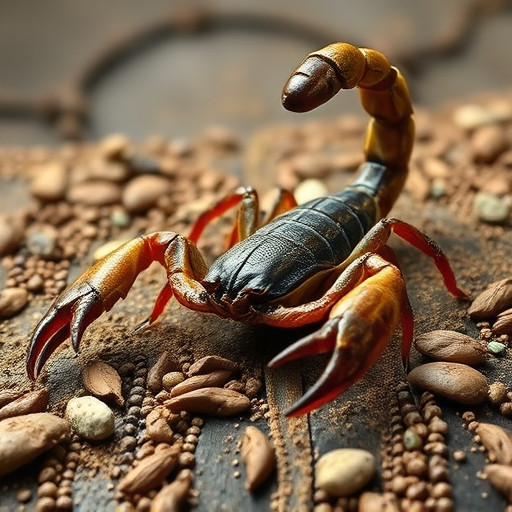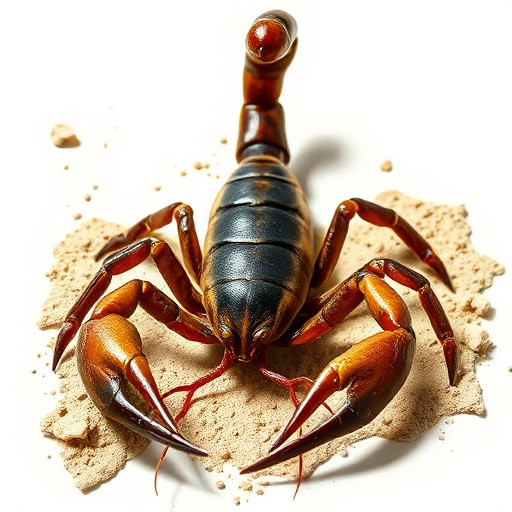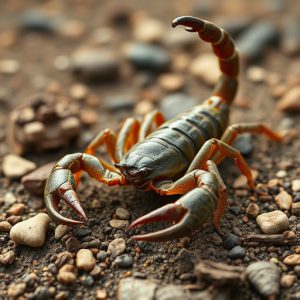Scorpion control in Tucson relies on understanding their habitat preferences, which include warm, sheltered areas with access to food and water. Homeowners should address entry points, seal water sources, implement pest management practices, and dispose of waste responsibly to deter scorpions. Late spring to early fall is the active period when artificial lighting can attract them, making effective scorpion control measures crucial for Tucson residents.
Tucson residents often share their homes with unwelcome visitors—scorpions. Understanding why these arachnids are drawn to specific areas within properties is crucial for effective scorpion control Tucson methods. This article explores the common factors that attract scorpions, from habitat preferences and water sources to food waste and light exposure. By delving into these factors, we aim to provide insights that can help residents implement tailored strategies for scorpion prevention and control in their homes and gardens.
- Understanding Scorpion Habitat Preferences in Tucson
- Water Sources and Their Role in Attracting Scorpions
- Food Sources and Waste That Entice Scorpions
- Light and Heat: When Scorpions Are Most Active in Tucson
Understanding Scorpion Habitat Preferences in Tucson

In Tucson, understanding where scorpions like to make their homes is crucial for effective scorpion control. These arachnids are drawn to areas that offer warmth, shelter, and food—all of which can be plentiful in urban environments. Dry, sunny spots with minimal vegetation, such as cracks in foundations, broken concrete, and unused outdoor spaces, often become ideal nesting grounds for scorpions. They particularly favor locations that provide access to water sources during the hotter months when temperatures can dry out their preferred habitats.
Tucson’s unique climate and topography create specific micro-habitats where scorpions thrive. The city’s many rock formations and cacti, while beautiful, offer secluded hiding spots for scorpions, making them less visible but no less prevalent. Maintaining a scorpion-free home in Tucson requires addressing these habitat preferences by sealing entry points, keeping outdoor areas well-trimmed, and implementing regular pest control measures to deter and manage scorpion populations effectively.
Water Sources and Their Role in Attracting Scorpions

Water sources play a significant role in attracting scorpions to Tucson properties, as these arachnids are drawn to areas with easy access to moisture. Scorpions are particularly attracted to places where they can find consistent water supply, which is essential for their survival and reproduction. In arid climates like Tucson, water sources become crucial oases that draw scorpions towards homes and gardens.
During the hot summer months, scorpions often seek refuge in shaded areas near watering spots. They might be found around irrigation systems, swimming pools, or even pet water dishes. Homeowners in Tucson should be mindful of potential scorpion habitats and consider implementing effective scorpion control measures to deter these pests from entering their properties. Regularly maintaining and sealing off water sources can significantly reduce scorpion activity, making it an important aspect of any comprehensive scorpion control Tucson strategy.
Food Sources and Waste That Entice Scorpions

In the search for sustenance, scorpions are drawn to Tucson properties by abundant food sources and waste. These arachnids thrive on a diet primarily consisting of insects, spiders, centipedes, and other small creatures, making them effective predators in the local ecosystem. However, human activity significantly increases the availability of easy-to-access meals for scorpions. Common household pests like cockroaches, ants, and flies are all attractive treats to these creatures. Moreover, outdoor waste such as uneaten pet food, compost piles, and garbage bins can serve as inviting feasts, luring scorpions into residential areas.
Effective scorpion control in Tucson involves addressing these enticing food sources. Proper pest management techniques, including regular cleaning, sealing entry points, and maintaining a clean yard, can significantly reduce the appeal of properties to scorpions. Additionally, responsible waste disposal practices, such as promptly collecting pet waste and securing trash cans with tight-fitting lids, play a crucial role in deterring scorpions from making Tucson homes their hunting grounds.
Light and Heat: When Scorpions Are Most Active in Tucson

In Tucson, scorpions are most active during the cooler evenings and early mornings, particularly from late spring to early fall. This is when their predators are less active, giving scorpions a better chance at finding food and shelter. During these times, the desert’s natural light and heat patterns create ideal conditions for scorpions to forage and establish territories.
The city’s warm climate makes Tucson a suitable habitat for scorpions year-round. While they prefer sunny areas with abundant rocks and crevices, artificial lighting from outdoor fixtures can also attract them. Scorpions are drawn to these lights, especially if they highlight dark corners or hidden spaces, making scorpion control in Tucson a constant concern for homeowners.
In understanding common factors that attract scorpions to Tucson properties, homeowners can better equip themselves for effective scorpion control Tucson. By addressing water sources, managing food waste, and being mindful of light and heat, residents can create an environment less hospitable to these pests. Proactive measures, combined with professional assistance when needed, ensure a safer and more comfortable living space in this unique desert ecosystem.
